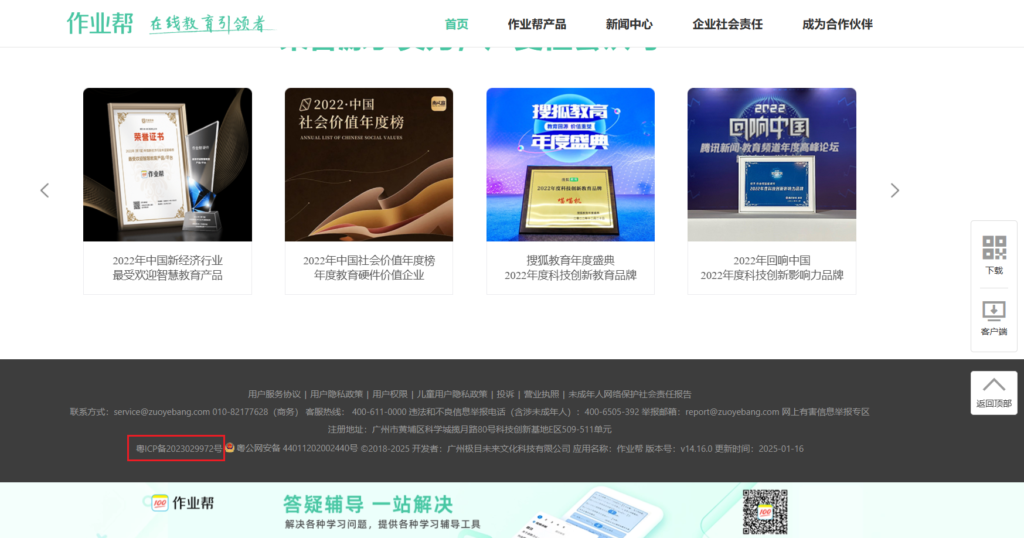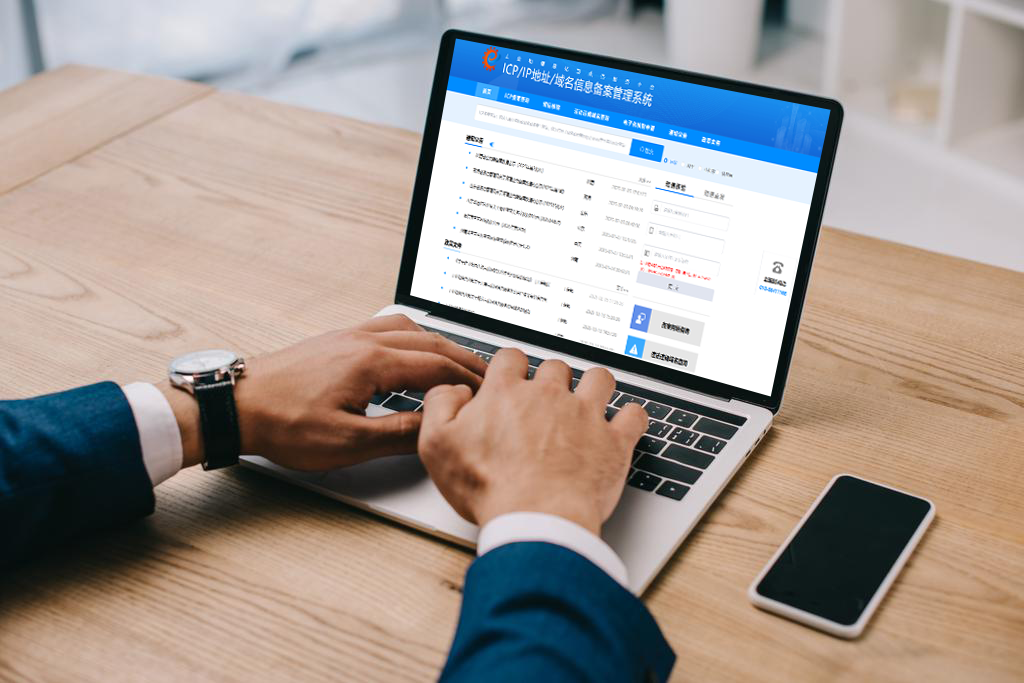Table of Contents
Expanding your business into the Chinese market offers huge potential, especially for companies involved in ecommerce and digital marketing in China. However, this growth comes with strict regulatory requirements. One of the most important steps to legally operate a website in China is securing an ICP (Internet Content Provider) License. Without this license, your website can be blocked, fined, or even shut down, resulting to limited access to one of the largest online audiences in the world.
In this guide, we’ll break down everything you need to know about applying for an ICP License, particularly if you're running an e-commerce platform or working with a marketing agency China. We’ll cover who needs an ICP License, the types of licenses available, the step-by-step application process, and the marketing benefits of staying compliant.
What is an ICP License and Why is it Important for Your Business?
An ICP License is a mandatory permit issued by the Chinese Ministry of Industry and Information Technology (MIIT) that allows websites to legally operate within China. It ensures that your online platform complies with the country’s strict internet regulations, which cover areas like content censorship, data security, and national security.


If you’re a business looking to establish an online presence in China—whether through an e-commerce site, a blog, or even a WeChat Mini Program—having an ICP License is non-negotiable. Without it, your website might be inaccessible to Chinese users, thus, severely limiting your market reach.
Why Does It Matter for E-Commerce and Digital Marketing?
China is the world’s largest e-commerce market, and consumers there expect fast, reliable access to websites. An ICP License not only makes your website legally accessible but also boosts your credibility. Chinese consumers are more likely to trust and engage with businesses that comply with local regulations, which can significantly improve your brand’s reputation and marketing efforts.
Types of ICP Licenses: Which One Does Your Business Need?
When applying for an ICP License in China, it’s crucial to understand the two primary types available, as selecting the correct one depends on the nature of your website:
ICP Filing (备案 or ICP Bei’an)
This type of license is intended for non-commercial websites that share information without engaging in sales or financial transactions. If your site functions purely as an informational platform, such as a blog or a corporate website that doesn’t feature e-commerce, you’ll need an ICP Filing. This process is generally quicker and less complex than obtaining a commercial license.
Key Requirements for ICP Filing:
- A valid form of identification for the legal representative (such as an ID card or passport).
- A domain name registered with an accredited Chinese domain registrar.
- A declaration stating that the website does not serve commercial purposes.
ICP Commercial License (许可证 or ICP Zheng)
If your website is involved in any kind of commercial activity—whether that’s selling products, offering paid services, or displaying advertisements—you’ll need an ICP Commercial License. This is a must-have for businesses engaged in ecommerce China, online service platforms, and digital marketing targeting Chinese consumers.
Key Requirements for ICP Commercial License:
- A valid Chinese business license, which means your company must be legally registered in China (commonly as a Wholly Foreign-Owned Enterprise—WFOE).
- A domain name registered through a Chinese domain registrar.
- Documentation proving ownership or authorization of the website’s content.
Who Needs an ICP License?
If your website falls into any of the following categories, you are required to have an ICP License to operate legally in China:
E-Commerce Sites
Online stores, marketplaces, and service platforms selling products directly to consumers, especially those involved in ecommerce China.
Advertising Platforms
Websites displaying ads or offering services related to marketing or advertising in China.
Social Media and Forums
Platforms that allow user interaction and content sharing, including WeChat H5 pages and Mini Programs.
User-Generated Content Websites
Blogs, video-sharing platforms, or any site allowing users to upload content, including platforms focused on social media China.
Eligibility Criteria for Foreign Businesses
For foreign businesses, obtaining an ICP License requires meeting specific legal and operational criteria:
Establish a Legal Entity in China
You must have a registered business in China, such as a WFOE or a Joint Venture (JV). This is the foundation for your application and particularly relevant for companies focusing on ecommerce or digital business in the Chinese market.
Meet Capital Requirements
Your business must meet the minimum registered capital for your chosen legal structure. These amounts can vary depending on the industry but are critical for digital marketing and ecommerce operations.
Physical Presence in China
A physical office in China is required. Virtual offices or overseas addresses are not accepted by the MIIT. This is essential for any company aiming to operate legally within Chinese e-commerce or digital marketing sectors.
Step-by-Step Guide to Applying for an ICP License
Now that you understand the basics, let’s go to the application process. Here’s how to apply for an ICP License, whether you’re managing an ecommerce platform or working in digital marketing China.
Step 1: Establish a Legal Entity in China
Before you start the application, your business must be legally registered in China. Setting up a Wholly Foreign-Owned Enterprise (WFOE) is the most common approach for foreign businesses. This process involves registering with Chinese authorities, meeting capital requirements, and obtaining necessary business permits.
Step 2: Choose a Chinese Hosting Provider
Your website needs to be hosted on a server physically based in China. You’ll need to choose a local hosting provider, as websites hosted outside China cannot obtain an ICP License. Many Chinese hosting providers also assist with the ICP application process, which is crucial for businesses operating in ecommerce China.
Step 3: Register a Domain Name in China
Your domain name should be registered with a Chinese domain registrar, preferably with a .cn top-level domain. This is an important step, as foreign-registered domains won’t qualify for an ICP License.
Step 4: Prepare Your Documents
You’ll need to gather the following documents:
- Your Chinese business license.
- Personal ID of the legal representative.
- Domain registration details.
- Hosting provider contract.
Step 5: Submit the Application
Submit your documents to the hosting provider, who will forward them to the Ministry of Industry and Information Technology (MIIT). The evaluation process may take anywhere from several weeks to a few months.
Step 6: Verification and Approval
MIIT will review your application to ensure compliance with Chinese regulations. Once approved, you’ll receive your ICP License number, which must be displayed on your website.
Marketing and Business Benefits of Obtaining an ICP License
Beyond legal compliance, an ICP License offers several marketing and operational advantages:
Improved Accessibility and Faster Loading Speeds
Hosting your website in China ensures faster loading times, improving user experience and boosting your site’s SEO ranking on Chinese search engines like Baidu.
Increased Trust and Credibility
Chinese consumers are cautious about online scams. Displaying your ICP License signals that your business is legitimate and trustworthy, which is particularly important for companies involved in ecommerce and digital marketing China.
Access to Local Payment Gateways and Ad Networks
Many popular Chinese payment platforms like Alipay and WeChat Pay require an ICP License. Additionally, you can access local ad networks to better target Chinese e-commerce consumers, a major advantage for digital marketers and ecommerce platforms.
Legal Protection and Risk Mitigation
An ICP License helps protect your business from fines, shutdowns, or other legal actions. It also ensures you’re in compliance with China’s strict cybersecurity and content laws.
What to Do After Getting Your ICP License
Once you’ve secured your ICP License, you need to stay compliant:
Display the License Number on Your Website
Your ICP License number must be visible, typically in the footer of your website.
Ongoing Compliance with Content Regulations
Regularly monitor your website to ensure it complies with Chinese censorship and cybersecurity laws. This includes managing user-generated content and staying updated with regulatory changes.
Renew Your License
ICP Licenses usually need to be renewed every 1–3 years. Ensure you’re aware of the expiration date and submit the renewal documents on time.
Final Thoughts
Securing an ICP License is more than just a regulatory requirement. It is your ticket to one of the world’s most lucrative digital markets. Whether you’re an ecommerce agency China or a digital marketing agency China, following the correct procedures ensures your business can tap into millions of potential customers, build brand trust, and expand its global presence.
Taking the time to understand and navigate this process can seem daunting, but the rewards for your business’s growth and marketing potential in Chinese e-commerce make it well worth the effort.





